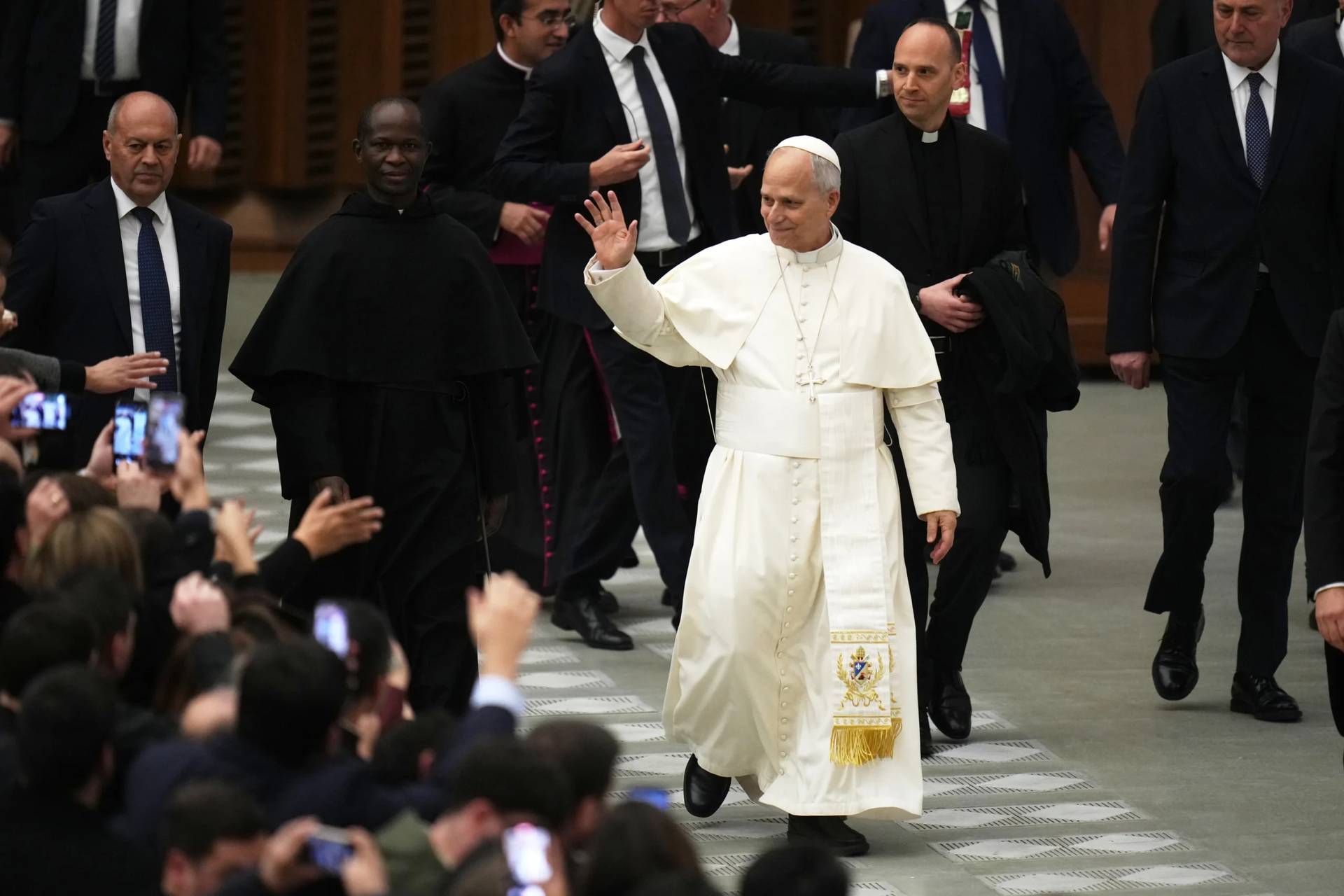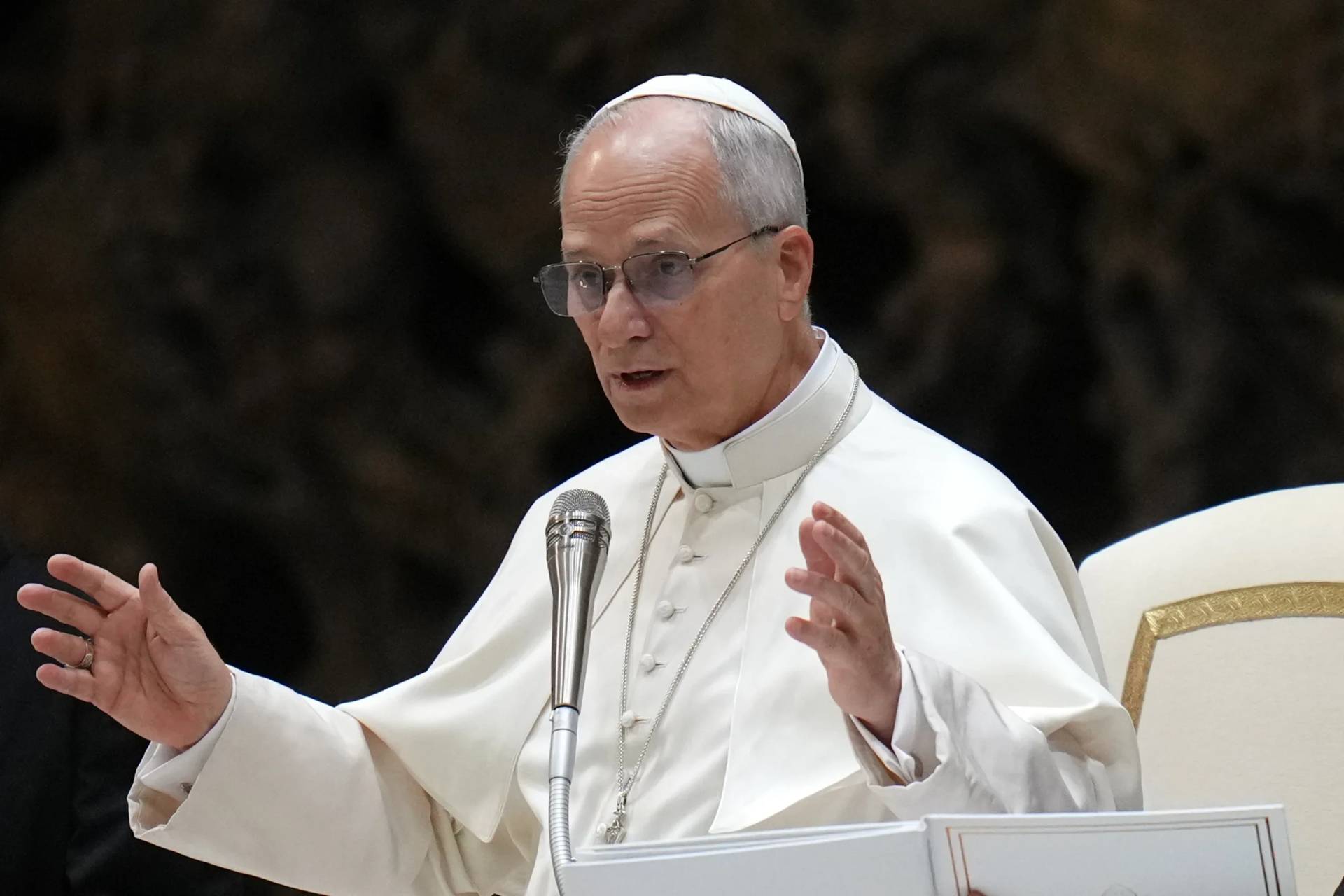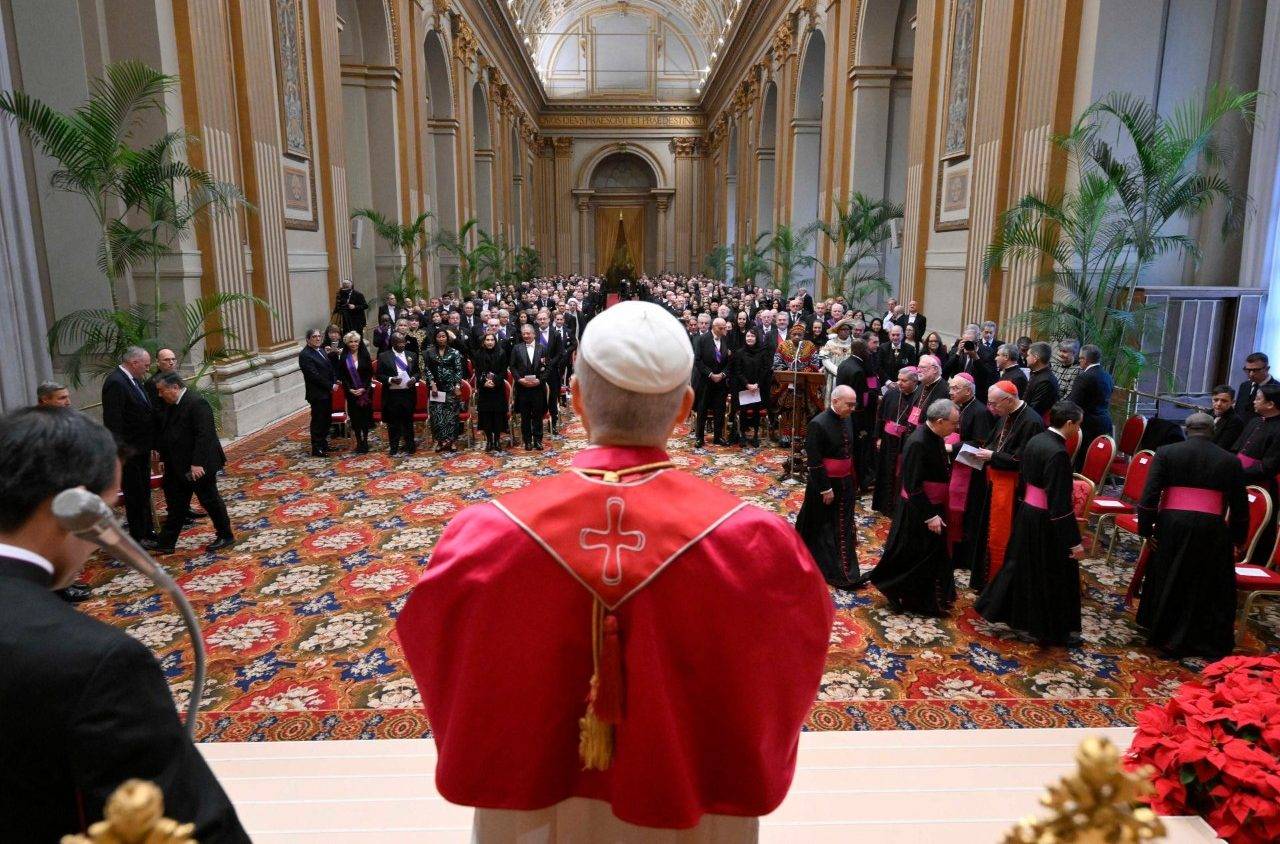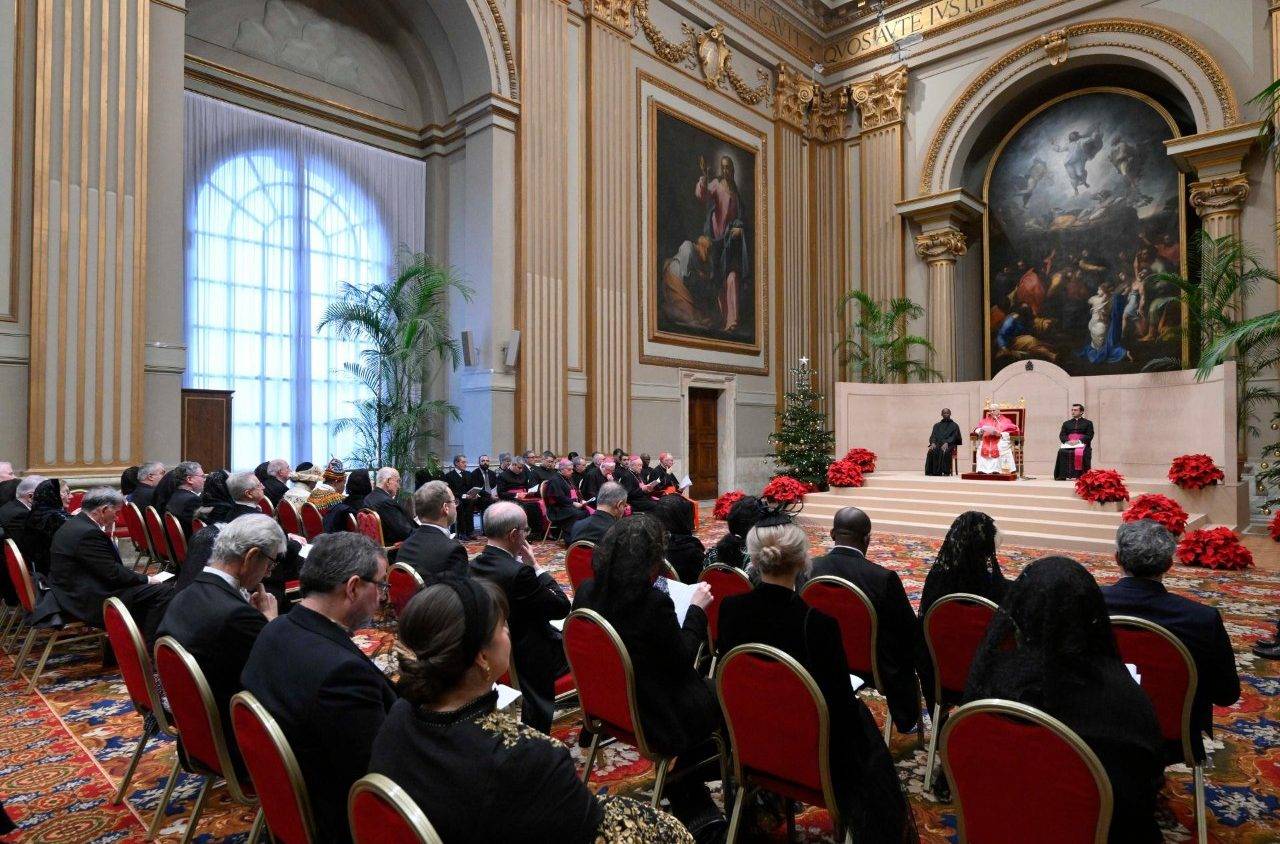NEW YORK — Few priests manage to land on the cover of Time magazine, but Father Ted Hesburgh was no ordinary priest.
For thirty-five years, Hesburgh served as president of the University of Notre Dame, where he became friends with popes and presidents alike. He would go on to march alongside civil rights crusader, Dr. Martin Luther King, Jr., and later become a leading voice for economic development in the third world.
In a new biography out on Tuesday, American Priest: The Ambitious Life and the Conflicted Legacy of Notre Dame’s Father Ted Hesburgh, Notre Dame historian Father Wilson Miscamble, chronicles the life and legacy of Hesburgh. While the two developed a steadfast friendship, it was challenged by competing understandings of Catholic higher education and decisions Hesburgh made during his tenure at the university.
In an interview with Crux, Miscamble discusses Hesburgh’s consequential decisions at Notre Dame and the challenges of being fully American and fully Catholic.
Crux: Notre Dame is considered one of, if not the premier institution of Catholic higher education in the United States, yet its Catholic identity is often the subject of vigorous debate. Why is that the case and what role does Hesburgh’s legacy factor into these debates?
Miscamble: In my book, American Priest: The Ambitious Life and Conflicted Legacy of Father Ted Hesburgh, I reveal how Notre Dame’s legendary president sought the respect of the secular academic establishment. He worked in light of its criteria, rather than those unique to a Catholic university. He emphasized “excellence,” but it was an excellence as defined by the secular institutions. As a consequence, Notre Dame has wrestled with issues of Catholic identity since Father Hesburgh’s time.
From Eisenhower to Clinton, Hesburgh was an ally or at least influential figure, for numerous presidential administrations. How did he manage to serve such a role — and maintain it for so long?
Father Hesburgh saw himself as a true American patriot and he held strongly that the United States possessed a special and God-given destiny. He loved this country and had a special regard for the office of the presidency. He felt a deep obligation to respond if called upon by an American president, and he was very glad to serve presidents from Eisenhower through to Clinton.
His role was, however, not one of a spiritual guide or religious counselor to these presidents in the manner of Billy Graham. Instead, he toiled tirelessly to aid the United States in resolving some of the major issues and challenges it confronted during these challenging decades from the 1950s through the 1990s. He held a number of special appointments that involved him on a range of issues; the most important by far was his service on the Civil Rights Commission from 1957 until 1972.
How did Hesburgh forge such a close friendship with Pope Paul VI — and what was his own personal response to Humanae Vitae?
Father Hesburgh served a number of popes through his role as Vatican delegate to the International Atomic Energy Agency, but he enjoyed a close personal friendship with Paul VI —at least for a time. They established their friendship when the then-Cardinal Montini visited Notre Dame in 1960 for the commencement exercises. A real bond was established between them and this continued once Montini was elevated to the Chair of Peter. Father Hesburgh had easy access to the pope and discussed a range of issues with him, including matters related to Catholic higher education.
At the request of Paul VI, he took the lead role in developing the Ecumenical Institute at Tantur in the Holy Land. It was undoubtedly a sadness for both men when their friendship ruptured in 1968. Father Hesburgh was surprised and disappointed with Pope Paul VI’s encyclical Humanae Vitae, but he made no public criticism. The rupture in their relationship came when Hesburgh endorsed criticisms of the Vatican made by Cardinal Leo Suenens of Belgium. Paul VI apparently was hurt by these criticisms and the fracture in the relationship was never fully repaired. The brotherly connection they had once shared could not be restored.
Did the university’s decision to award President Barack Obama with an honorary doctorate in 2009, which you were widely considered to be one of the leaders of the opposition to, prove to be irreparable for your friendship with Hesburgh?
Father Hesburgh and I maintained our friendship right through until his death, but our contact certainly diminished as our views regarding the direction of Notre Dame diverged in the final decade or so of his life. He found particularly troubling my public criticisms of the honoring of President Barack Obama by Notre Dame in 2009. While I spoke at a protest rally on that commencement day, Father Ted basked in the glory of praise from the nation’s president. Thereafter, I kept our occasional conversations rather light and away from controversial topics when I saw him at my order’s retirement home, to which he had moved in 2005. I had no desire to upset or to argue with him.
As you look back on Hesburgh’s legacy at Notre Dame, if you could reverse only one of his decisions, which would it be?
I prefer to answer this question by identifying a couple of broad areas where I have regrets about actions Father Hesburgh either took or failed to take.
It is because of my high regard for Father Hesburgh and his capabilities that I have regrets in the more general sphere that he did not give the same energy and commitment to the pro-life movement after Roe v. Wade that he gave to his civil rights efforts during his service on the Civil Rights Commission. I know that this would have involved him in challenging some of the groups and individuals with whom he had become involved, like the Rockefeller Foundation. He could have played a valuable role in this crucial area.
Father Hesburgh never achieved his grand goal of constructing a great Catholic university because he never developed a strategy that identified and developed the means to secure that good end. While he surely did his part to raise the finances and to erect the buildings to fulfill his goal, he never gave sufficient attention to the crucial areas of faculty hiring and curriculum content. He failed to address effectively the crucial issues at the heart of a university – namely, who teaches and what is taught. His desire that Notre Dame fit comfortably into the American academic milieu and that it win the respect of the leading secular universities won out. I regret that he succumbed too much to the pressures to conform in the central academic domain of the university.
Hesburgh was both fully American and fully Catholic. In today’s political climate, many Catholics find those two stances in tension. How do you think Hesburgh would navigate our current political moment?
As I said above, Hesburgh had a deep love for the United States, and of course his whole life was tied up with his service as a priest. He viewed the United States as a work in progress and it remained for him always “the most exciting human experiment in the world.” Father Ted never acknowledged that there might be significant tensions involved in his serving both his church and his nation. Even when he got caught increasingly in the embrace of the secular, liberal establishment – especially through his membership on the board of the Rockefeller Foundation – he never questioned the range of his public involvements. But perhaps membership in this establishment exacted a painful price for him.
Far from shaping public attitudes in key areas in America, where his voice might have made a difference, he increasingly either reflected the American liberal political and social agenda or he downplayed the areas where he dissented from it. In the end, perhaps it might have been better if Father Ted had recognized that it is sometimes challenging to be both fully Catholic and fully American.
















